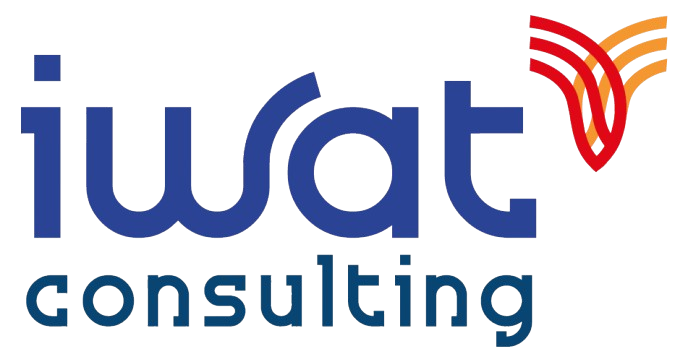Article 1

In today’s fast-paced and ever-evolving business environment, organizations need more than just strong strategies—they need strong leaders who can guide their teams through change, uncertainty, and growth. Organizational coaching has emerged as one of the most effective ways to develop these leaders. Far from being just a trend, coaching is a vital practice that directly impacts organizational performance, leadership quality, and overall business success.
Yet many businesses overlook the long-term benefits of coaching, focusing instead on quick wins or short-term solutions. In fact, research by the International Coach Federation (ICF) shows that 86% of companies that invest in coaching see a return on investment and 96% of those who have received coaching would repeat the experience. These numbers reflect the growing importance of coaching in creating sustainable leadership and organizational excellence.
This article explores the crucial role organizational coaching plays in modern businesses, how it strengthens leadership teams, and why it should be a key part of any organization’s growth strategy.
The Role of Coaching in Modern Leadership Development
Leadership is no longer just about directing teams or making high-stakes decisions—it’s about fostering collaboration, driving innovation, and inspiring others to excel. Today’s leaders face unprecedented challenges: digital transformation, remote teams, constant market disruptions, and a heightened focus on diversity, equity, and inclusion. To navigate these complexities, leaders must be adaptable, self-aware, and continuously developing their skills.
Organizational coaching provides a personalized and ongoing development pathway that ensures leaders are equipped to handle these challenges. By working with a coach, leaders can:
- Enhance their emotional intelligence: Effective leaders are emotionally intelligent, understanding not just the technical aspects of their work, but also the human element. Coaching helps leaders develop self-awareness, empathy, and better communication skills.
- Gain clarity on their vision and goals: Coaching helps leaders set clear, actionable goals that align with both personal and organizational objectives. This fosters greater strategic alignment within the business.
- Develop stronger decision-making skills: With coaching, leaders learn to make more informed and effective decisions by evaluating situations from multiple perspectives, considering the broader implications for the organization.
A report by Forbes found that companies with strong coaching cultures saw a 33% increase in leadership engagement and 25% better performance across the organization. These numbers show that coaching is not just a nice-to-have, but a crucial aspect of leadership development in today’s competitive marketplace.
Organizational Coaching Fosters a Culture of Collaboration and Accountability
One of the most significant benefits of coaching is the shift in culture it brings to organizations. When leadership teams engage in coaching, they model the behavior of continuous learning and personal accountability, which cascades throughout the company. Coaching encourages leaders to ask for feedback, reflect on their performance, and seek out opportunities for improvement, which in turn creates a ripple effect across the organization.
- Encouraging Collaboration: Coaching helps break down silos by teaching leaders how to collaborate effectively with their peers and teams. This encourages a more cohesive working environment where ideas flow freely, and teams are aligned towards common goals.
- Building Accountability: When leaders are coached, they learn the importance of accountability—not only to themselves but to their teams and the organization as a whole. Leaders who embrace coaching are better able to motivate and inspire their teams, holding themselves accountable for their decisions and actions.
For example, companies like IBM and General Electric (GE) have long embraced coaching as a way to cultivate a high-performance culture. Both organizations have created internal coaching systems that focus on peer-to-peer coaching, executive coaching, and leadership development. As a result, they’ve seen increased collaboration across teams, innovation, and a stronger sense of shared responsibility for business outcomes.
Coaching Drives Organizational Agility and Innovation
Another key benefit of organizational coaching is that it fosters agility. In an era where disruption is the norm, companies need leaders who can think on their feet, pivot quickly, and inspire their teams to embrace change. A Center for Creative Leadership (CCL) study revealed that organizations with leaders who have undergone coaching are more agile and better equipped to respond to market changes.
When executives and teams receive coaching, they develop a growth mindset, which is crucial for driving innovation. They become more open to experimenting with new ideas, learning from failures, and pushing boundaries—all of which are essential to staying ahead of the competition.
A compelling example of this is the rise of Microsoft under Satya Nadella. Nadella brought a coaching culture to the leadership team, emphasizing continuous learning and growth. This has been credited with shifting Microsoft’s corporate mindset, leading to innovation in products and services and a massive increase in the company’s market value.
Why Coaching Matters for HR and Talent Development
For HR departments, coaching is an invaluable tool for talent management and retention. Employees today want more than just a paycheck—they want to feel engaged, valued, and given opportunities for growth. Investing in coaching helps HR departments retain their top talent by providing them with personalized development plans and regular performance tracking.
- Developing Future Leaders: Coaching ensures that organizations are not just focused on today’s leadership needs but are also building a pipeline of future leaders. HR teams can use coaching to identify high-potential employees, give them the tools they need to succeed, and nurture their growth over time.
- Improving Employee Engagement: Employees who receive coaching often report feeling more engaged and motivated. According to a Gallup report, employees who feel supported in their professional growth are 3 times more likely to stay with their company.
Through organizational coaching, HR can create a culture where learning and development are valued, making the company more attractive to both existing employees and new talent.
Conclusion: The Future of Leadership Lies in Coaching
In a world of constant change, organizations that invest in coaching for their leaders and teams are better positioned to succeed. Whether your organization is undergoing a transformation, looking to strengthen its leadership pipeline, or simply aiming to drive more collaboration and innovation, organizational coaching offers a powerful solution.
From building stronger, more accountable leaders to fostering a culture of agility and innovation, coaching helps organizations unlock the full potential of their talent. If you’re looking to future-proof your business and develop a high-performing executive team, consider integrating coaching as a core part of your leadership development strategy.
Interested in learning more about how organizational coaching can transform your business? Contact IWAT Consulting Group today for a consultation and explore how we can help your leaders thrive.



